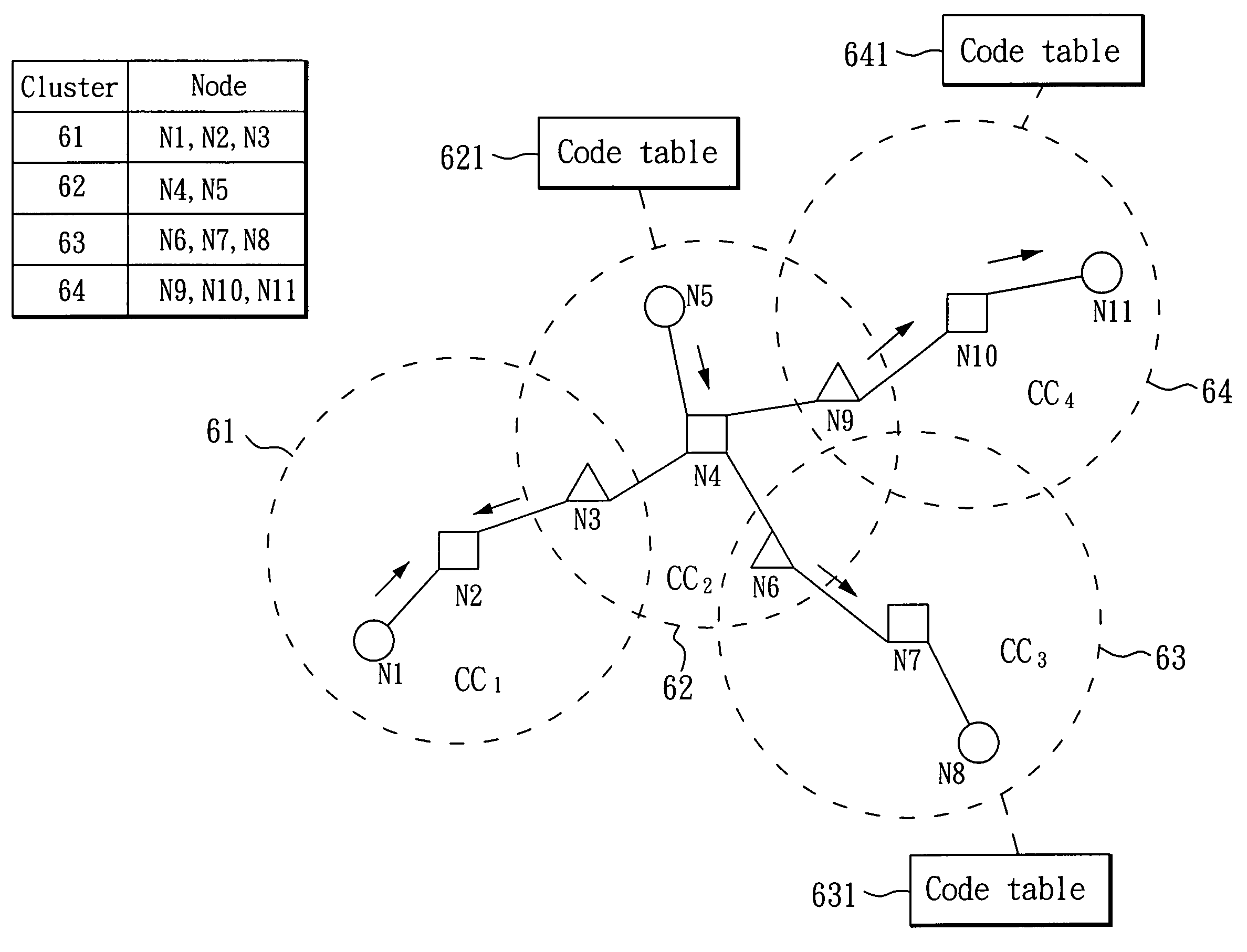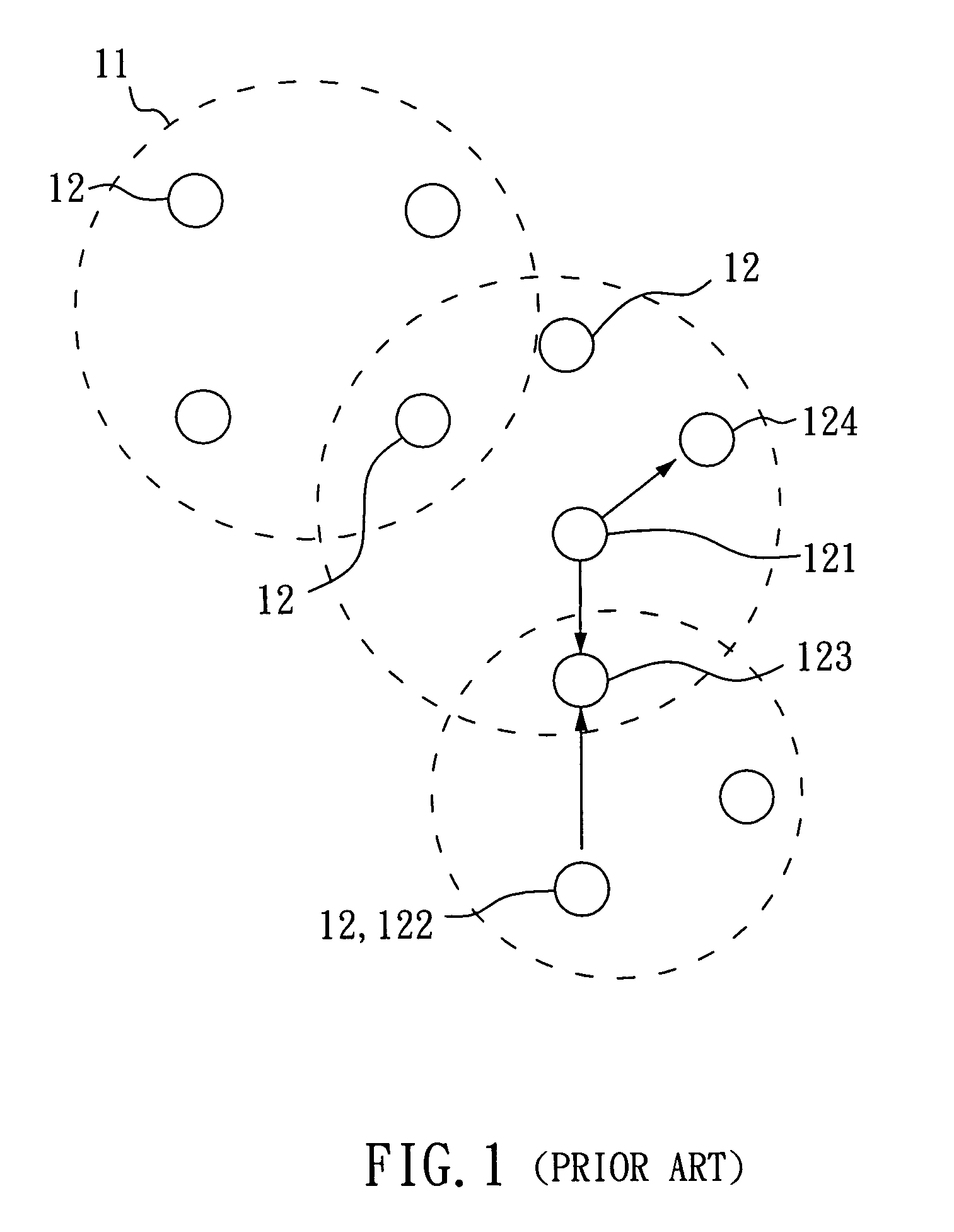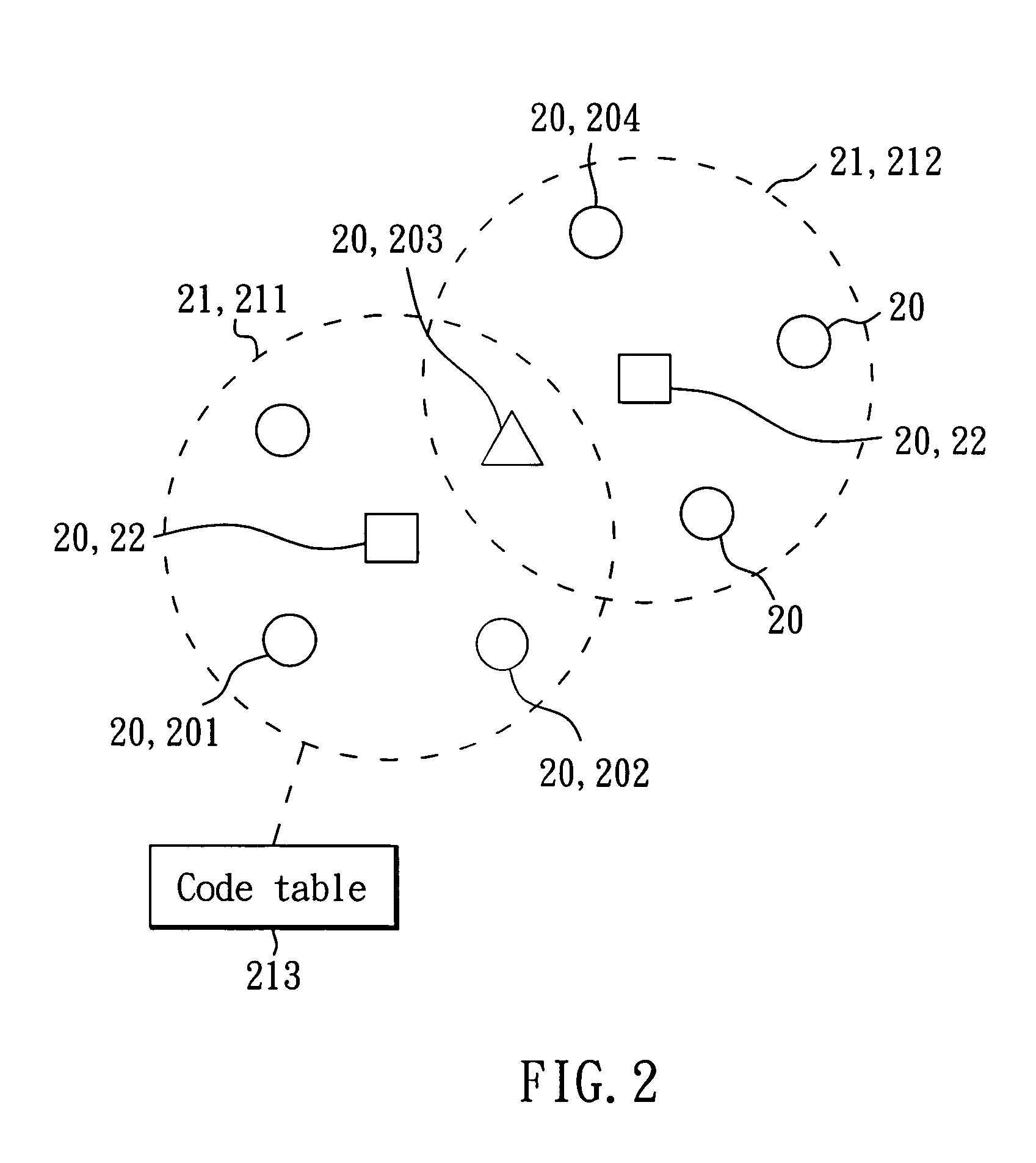Channel assigning method for ad-hoc network
a channel assignment and channel technology, applied in the field of ad-hoc networks, can solve the problems of hidden terminal problems, difficult to carry out qos guarantee to support real-time traffic, complicated scheduling of ad-hoc networks, etc., and achieve the effect of favored code utilization
- Summary
- Abstract
- Description
- Claims
- Application Information
AI Technical Summary
Benefits of technology
Problems solved by technology
Method used
Image
Examples
Embodiment Construction
[0023]FIG. 2 is a system configuration applying a channel assigning method for ad-hoc network according to the invention. In FIG. 2, all mobile nodes (MNs) 20 in the ad-hoc network are grouped into several clusters 21. Mobile nodes 20 in each cluster 21 can be grouped into three roles: cluster head, gateway node and ordinary node. Each cluster 21 has only one cluster head 22 that has a one-hop distance from any of other mobile nodes 20 in the same cluster 21. Namely, one mobile node has at most two-hop distance from other mobile nodes 20 in a same cluster 21. Also, each cluster 21 defines a common code different from its adjacent clusters such that all mobile nodes 20 in the cluster 21 can use the common code to encode and send their transmitting packets to one another without causing interference from adjacent cluster. There exists at least one gateway node 203 between two clusters 211 and 212 for communication. Namely, the gateway node 203 in the cluster 211 has a one-hop distance...
PUM
 Login to View More
Login to View More Abstract
Description
Claims
Application Information
 Login to View More
Login to View More - R&D
- Intellectual Property
- Life Sciences
- Materials
- Tech Scout
- Unparalleled Data Quality
- Higher Quality Content
- 60% Fewer Hallucinations
Browse by: Latest US Patents, China's latest patents, Technical Efficacy Thesaurus, Application Domain, Technology Topic, Popular Technical Reports.
© 2025 PatSnap. All rights reserved.Legal|Privacy policy|Modern Slavery Act Transparency Statement|Sitemap|About US| Contact US: help@patsnap.com



